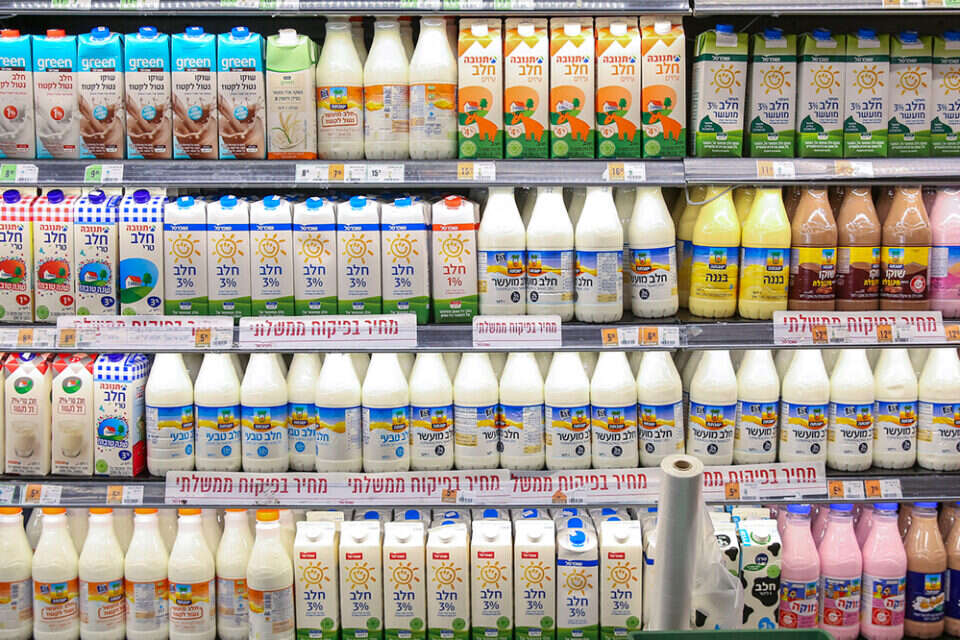The prices of sea transport and raw materials and supply chain problems apparently did not affect milk production output, and the Israeli cow is the world champion in milk yield.
So why is milk still so expensive in Israel, and will it remain expensive this year as well?
Beyond that, why is there a shortage of milk in the marketing chains this year as well?
In addition, milk prices in Israel are 80% higher than the OECD average.
The dairy farm in Israel is planned in a centralized way: every year, the Minister of Agriculture and the Dairy Council set the milk quotas that can be produced in that year.
It should be noted that Israel is one of the few countries in the Western world that still plans the dairy farm.
This is of course an outdated method, according to which dairymen have an interest in reducing quotas so that the price will be higher.
About a month ago, Agriculture Minister Oded Forer signed a dairy farm planning order for 2022, which states that production quotas will also be 1.538 million liters this year, as has been the case since 2020. This is despite the population growing at an annual rate of 1.7%.
This will bring the level of local milk production to 163 liters of milk per capita in Israel, the lowest figure in the last decade.
In other words, this signature - which has passed under the media radar - also confirms the current situation this year: high prices and a spot shortage during peak periods of demand, such as holidays.
The decision is based, among other things, on the recommendation of the quota committee in the Dairy Council, according to which in 2021 1,500 million quotas were distributed, and therefore there is no need to increase the amount of milk produced.
Consumers in the supermarket in Israel, Photo: Liron Moldovan
Elad Malka, CEO of the Public Lobby "Our interest - your lobby in the Knesset", said: "In 2020, milk production quotas were reduced and since then, despite the population growth, they have remained the same.
Therefore, milk prices have remained high and there is a shortage of milk in the marketing chains.
The Minister of Agriculture must internalize the size of the hour, increase production quotas, open up the market to imports and lower prices for food security for citizens. "
The Office of the Minister of Agriculture: "Milk prices are not related to quotas. There is an excess production of milk, and even milk has been spilled and dried in recent months.
Were we wrong?
Fixed!
If you found an error in the article, we'll be happy for you to share it with us

